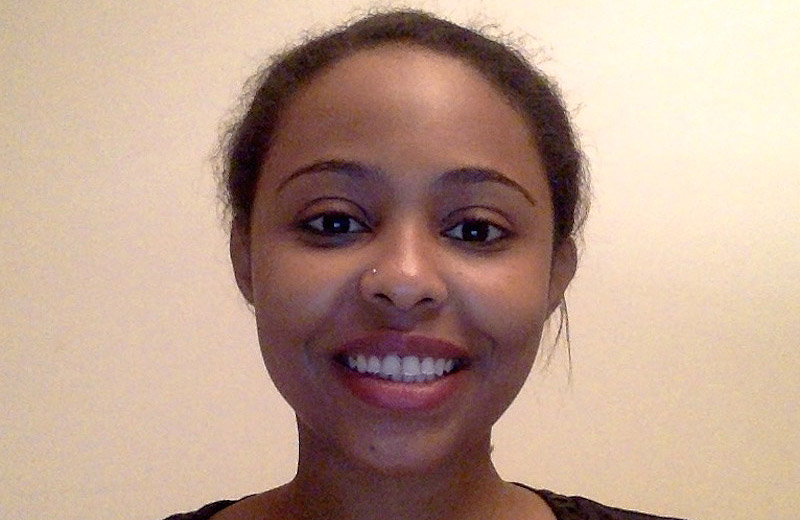“Doing extensive research into the curriculum ahead of enrollment is a critical step in being well prepared for absorbing and managing your MPH academics.”
Tigest Tamrat is a Consultant at the World Health Organization’s (WHO) Department of Reproductive Health and Research headquarters in Geneva, Switzerland, where she focuses on digital health innovations and their impact on reproductive, maternal, newborn, child and adolescent health (RMNCAH). A Master of Public Health in Epidemiology (2012) from Columbia University’s Mailman School of Public Health helped lay the foundation for her daily work. Here she shares countless gems from her MPH journey.
ME: Tigest, thank you for taking the time to give us a behind-the-scenes look at your educational and professional paths. Let’s start with your “why”. What was your single biggest motivation for pursuing an MPH?
Tigest: For my undergraduate degree, I had majored in history at a liberal arts college. As with most students who have ties to their home country, I knew I wanted to do something that would bring about practical change and impact lives. However, I was always confronted with questions about how I would apply my degree in a meaningful way to achieve those humanist ambitions.
I had always gravitated towards medicine and truly wanted to contribute to this field, but I knew that I could not stomach the blood and gore. Immediately after graduating with my first degree, I worked at a medical organization in Ethiopia, my home country, and was involved in a lot of non-clinical yet public health activities, including coordinating nutrition programs, facilitating births at health facilities and understanding stopgap measures that can be taken for home-based births, responding to health needs of incoming refugees, and controlling issues sparked by water-related illnesses.
While being a physician is critical in these situations, there were also many other structural and systematic challenges that needed to be addressed. My liberal arts degree was useful in helping me to analyze contexts and articulate ideas in the form of proposals, but I also had to read and educate myself a lot on clinical protocols and health management. After two years of stretching out my history degree, I knew that there were limits to what could be self-taught, as well as that I needed to have the appropriate credentials to be taken seriously in a such a clinical and professional field. An MPH seemed like a good fit for equipping me with the necessary tools for moving my career to the next phase.
ME: Yes. That took me some time to realize as well, but working on structural and systematic healthcare frameworks, like being a physician, can lead to practical and lasting change. It can be a relieving epiphany for healthcare lovers who think “big picture” or who don’t like “blood and gore”.
So when you were at Columbia, what was the most surprising outcome of your studies?
Tigest: I realized that I actually didn’t know what I was getting into and should have explored the different departments prior to enrolling. MPH programs are not monolithic, and there are various departments and study tracks. In addition to the uniqueness of the topic areas, these different study tracks also have their own implications on employment opportunities and types of exposures in practicums. I studied Epidemiology and going in, I just thought it was about disease control and learning clinical procedures. It was in fact very data/statistics heavy, which ended up being useful and made me feel a bit more marketable than peers from other departments. However, I think doing extensive research into the curriculum ahead of enrollment is a critical step in being well prepared for absorbing and managing your MPH academics.
ME: That is priceless advice! It’s so important to truly understand all that is on offer at a graduate school before you apply. Interview alums from as many departments and tracks as you can, go to open days, sit in on classes, look over syllabi, look at the skills required for entry-level jobs in your field, and understand the trends in your field and which skills you will need to be marketable—or management material—years from now. And once you enroll, don’t hesitate to switch if you realize another department or track can better equip you to crush your short- and long-term goals.
Speaking of alums. Now that you are out of school, tell me: How has your master’s degree helped you in your professional life?
Tigest: My master’s degree has provided concrete skills that have translated to my work. My immediate job following my MPH was a research manager for an adolescent health program, and this role required operating an SPSS statistical package and monitoring data on implementation efforts. Having this degree essentially made me the core person for producing all related data for informing implementations and evaluating the effects of our interventions. The degree has also been important for empowering me to be in relatively senior roles for leading public health research and managing large-scale interventions.
ME: That is exactly what you wanted — the appropriate credentials to be taken seriously. I am glad that you are already leading.
For those on their MPH journey as we speak, what would you advise them to do in order to finish strong?
Tigest’s 5 Tips For Finishing Your Master of Public Health (MPH)
1. Find a professor or faculty member to whom you can reach out for guidance and mentorship:
I know this may seem easier said than done, but this is literally what got me through graduate school. At the end of my second semester, I had to a do a thesis and was essentially left on my own to figure out a topic, obtain a dataset, and identify reviewers. This was a similar experience across other peers. What helped me was finding a faculty member who could point me to areas for getting a dataset, someone who was willing to review and give me feedback on ideas for my thesis topic.
2. Take advantage of the chance to be placed in a practicum:
It doesn’t need to be for a long duration, but having an international placement early on can not only establish good networks for future employment, but also help you to reflect on what exactly you want to get out of the MPH. There are a lot of critical managerial life skills that an MPH academic program cannot teach, so a practicum and any related work opportunities will be important for shaping what you want to get out of your MPH.
3. Form/join a study group:
I like to study by myself, but having a small group of peers in your cohort is really helpful for reviewing your work and just keeping everyone abreast of updates that someone may miss. For example, a professor may have posted a useful resource, and the study group may help to make sure you don’t miss updates. It’s also great to have different perspectives to tackle assignments and discuss topics that may further stimulate interests.
4. Do your best and challenge yourself with new courses and campus research jobs:
This seems pretty obvious, but use the MPH opportunity to learn about new areas that you may not have otherwise had in mind. A lot of my current work now focuses on the use of digital technologies for health. During my MPH, I worked off campus at a research lab on digital technologies, something that I was very much unaware of prior to my academic program. Dipping my toes into this completely new area ended up serving me well and opening a completely new area of health interests that I ever imagined.
5. Take advantage of guest lectures and nonacademic opportunities provided by your MPH program:
One of the great things about an on-campus MPH program versus an online program is that you can be exposed to events and high-profile visitors who are invited to deliver lectures and presentations.
ME: Whew! That was more like a masterclass on how to get the most out of your master’s studies! Top-notch, actionable strategy. Thank you, Tigest.
At the WHO, Tigest Tamrat facilitated the development of a mobile health assessment and planning for scale toolkit and other resources targeting the global digital health community. Previously, Tigest served as a research officer coordinating multi-country adolescent and reproductive health programs at the Population Council based in Ethiopia. In addition to an MPH, she holds a Bachelor of Arts from Swarthmore College.



